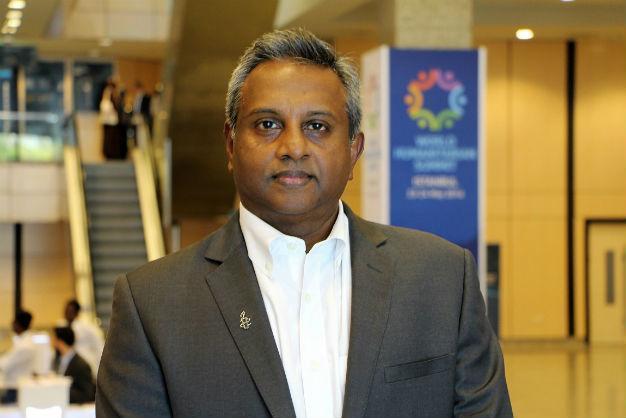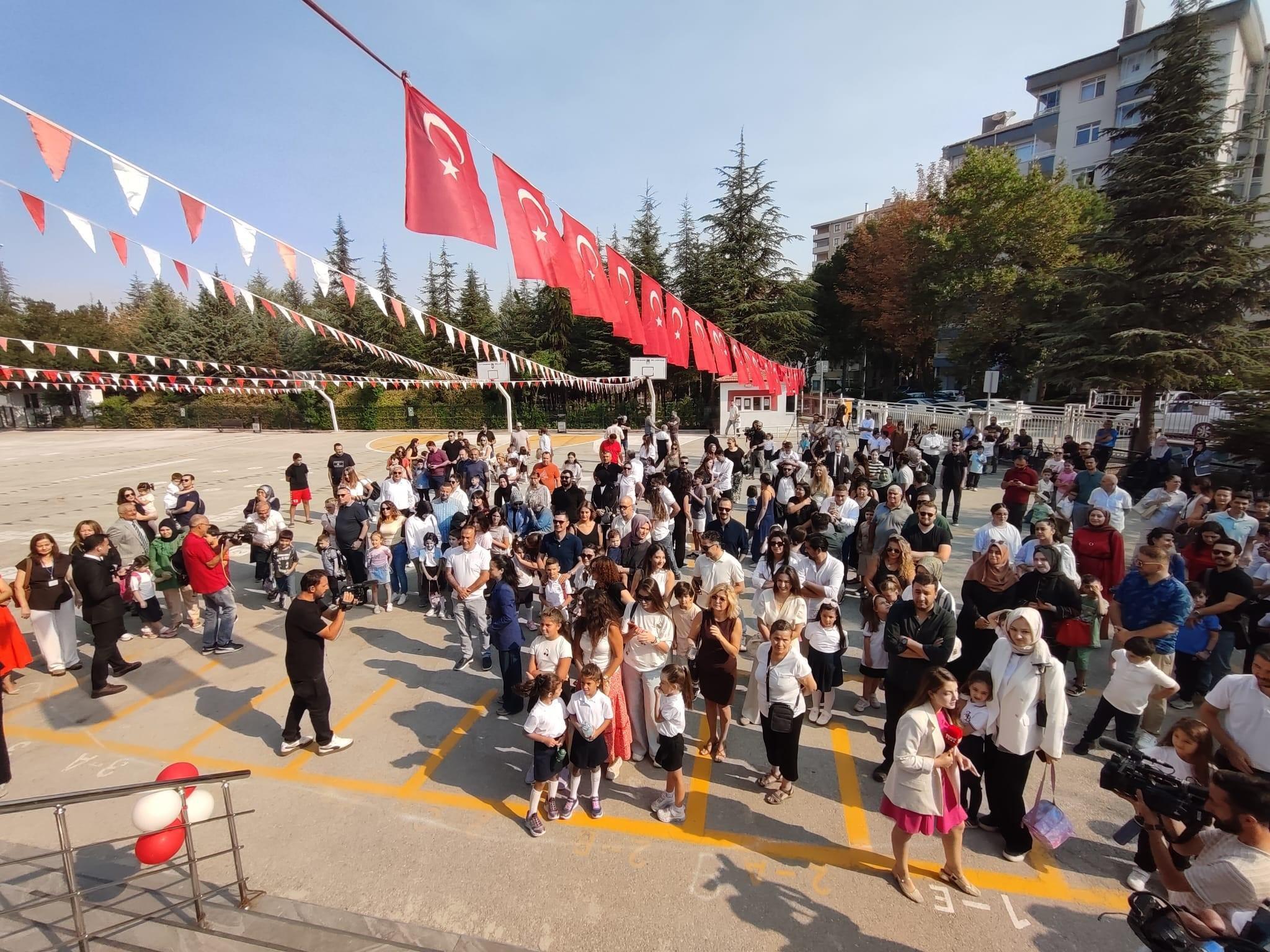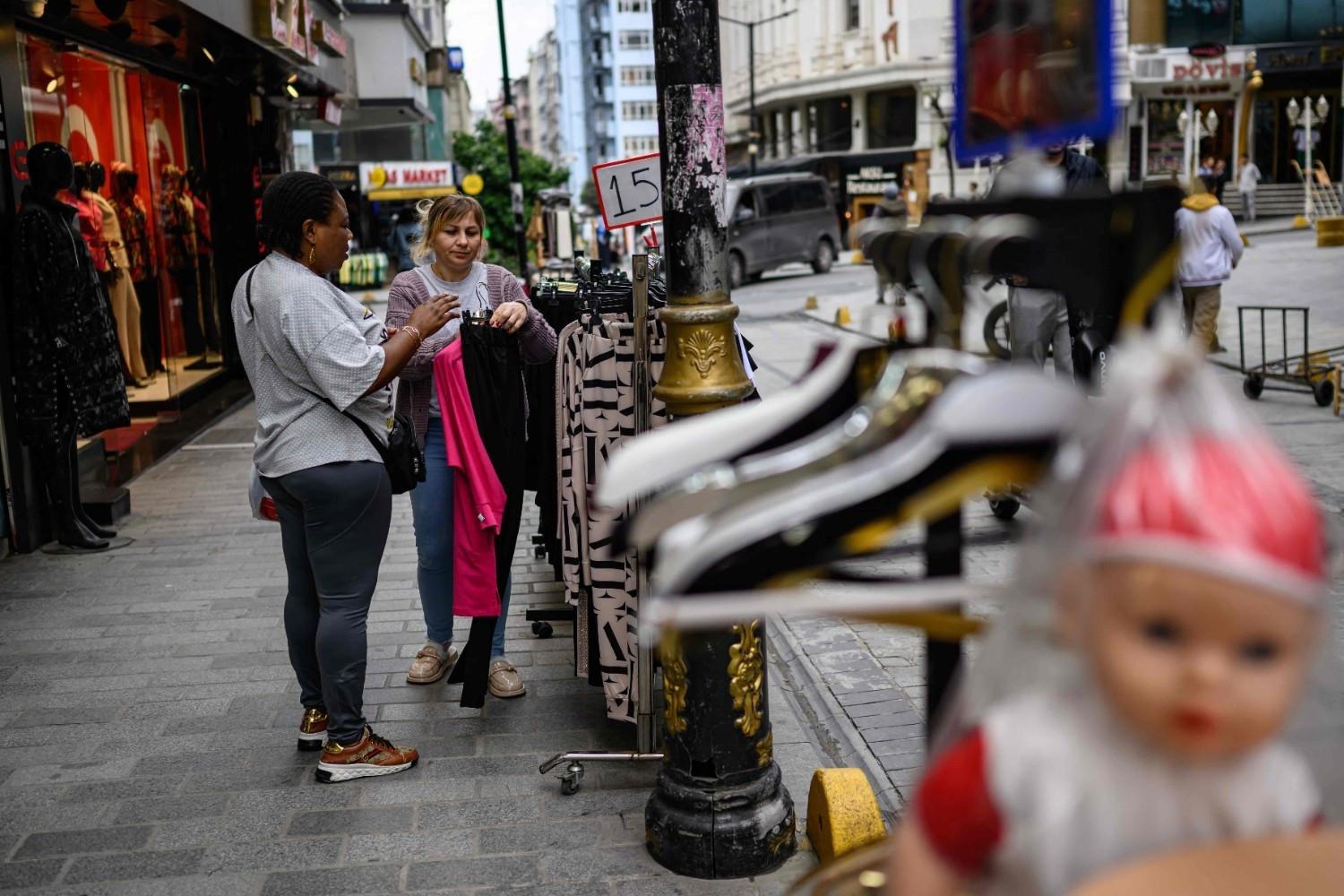‘EU turned blind eye to Turkey’s human rights violations’: Amnesty secretary-general
Öykü Altuntaş - ISTANBUL
 Europe has turned a blind eye to human rights problems inside Turkey to tackle the global refugee crisis, Amnesty International Secretary-General Salil Shetty has said on the sidelines of the World Humanitarian Summit in Istanbul.
Europe has turned a blind eye to human rights problems inside Turkey to tackle the global refugee crisis, Amnesty International Secretary-General Salil Shetty has said on the sidelines of the World Humanitarian Summit in Istanbul.“Europe particularly has double standards. Now that they want something from Turkey, they have turned a blind eye to human rights problems inside Turkey,” Shetty said in an interview with Doğan News Agency (DHA) on May 24.
“The overall concern on the refugee problem is less with Turkey; it is much more with Europe who is outsourcing its problem to Turkey,” he said, reiterating that Europe was a signatory of the refugee convention. “Europe has to take each asylum seeker case by case... They lecture the whole world about human rights and the first time there is a real test for them, they are not living up to all their claims,” he said.
‘Turkey’s policy on Syrian refugees completely changed’
Shetty also noted that Turkey had been “generous” by keeping borders open for several years. However, he said the country’s policy had changed.
“The problem started in the last part of 2015, when the policy on Syrian refugees completely changed,” he added.
“Now the borders are closed, they in fact shoot at people who are coming across; pushing people back and if anybody gets through, they put them into detention centers, even after the refugee deal… The EU is pushing refugees to Turkey but you can no longer say that Turkey is a safe country for refugees,” Shetty said.
The secretary-general also commented on “violations against the Kurdish population” in the country’s southeast after a two-day-long visit to the southeastern province of Diyarbakır.
“We managed to gain access to the curfew zone of historic city of Sur. I must say what I saw there was shocking; the area was razed to the ground, people have lost their houses, there has been excessive use of tanks and heavy artillery on very densely populated areas and round-the-clock curfews,” he said. These acts “violate the Turkish national law and international human rights law,” Shetty said.
‘Turkey cannot ‘punish an entire community’ for violence in the southeast’
Shetty said the point was how to deal with the problems in the country’s southeast.
“We have no question about the security problem faced by the Turkish government. But the issue is how you deal with it,” said Shetty, who described the security interventions in the region as “disproportionate.”
“Half a million people have now been displaced in Turkey southeast, and there is no clarity on whether they will get their houses and properties back,” Shetty said.
“You cannot have collective punishment against the entire community, if a few people are involved in some kind of violent activity,” he added.
Shetty also commented on the killing of human rights lawyer Tahir Elçi, calling it a “mysterious case” without a credible investigation despite some procedures.
Salil Shetty also met the lawyer’s widow, Türkan Elçi, along with lawyers and experts at the Diyarbakır Bar Association during his visit to the area ahead of the summit.
“Why aren’t they allowing Amnesty International and other independent observers if they have nothing to hide?” asked Shetty, pointing to the United Nations’ and other organizations’ difficulty in accessing Cizre and other areas in Diyarbakır, where operations and curfews have been ongoing.
The governor told Amnesty officials “they were welcome to Sur” but for other areas, they were “told to address the Ministry of Foreign Affairs” for access, Shetty said.
‘Shrinking space for democratic institutions’
Shetty also criticized Turkey’s “shrinking space for democratic institutions” including the media, judiciary and academia. Out of the four journalists he met during another visit to Turkey, they hold either been terminated by their newspaper, lost their job or gone to a pro-government newspaper, he noted.
Freedom of expression is “not a new problem” in Turkey. However, the unique part of the situation is that “not only critical journalists, but also ordinary people who are present online have been threatened with the anti-terror law,” he said, describing the situation as “judicial harassment” against media institutions and journalists.
“More than a thousand academics who actually signed a petition for peace are intimated, prosecuted and charged,” he added, underlining the significance of Turkey’s “respected” global image made up of credible institutions.
“If these institutions are being crushed, then we are facing a difficult future,” he said.
Amnesty has been addressing the Turkish government with several questions on alleged human rights violations including “illegally returning Syrian refugees,” “immense pressure on the media,” “violence against civilians” and “excessive use of force” by security forces in curfewed southeastern areas.
“Until now the access has been at the local level, but the relationship on the national level has been more difficult,” Shetty said, while praising the government’s welcoming stand during Amnesty observers’ visit to Diyarbakır and the curfew area of Sur.
‘International humanitarian laws ‘completely forgotten’ in conflict zones’
Amnesty’s message during the first-ever World Humanitarian Summit was that “In the last few years, international human rights law have been completely forgotten” in the world, especially in conflict zones, he said.
“Civilians have become pawns in the political game of national governments and political actors. We do not need rules, there are laws already. Governments are just floating those laws. Of course armed groups are also doing this. But governments are the ones who are primarily responsible as they signed up to the refugee convention and international humanitarian law.”
‘Human rights a question of leadership’
The world is dealing with a “historic record” of 60 million forced displaced people across the globe, Shetty said, while calling for a “system of global re-distribution” for refugees. Although this was not achieved during the summit, Amnesty will be following the upcoming U.N. General Assembly meeting that will take place in September, Shetty said.
The issue of human rights in the case of refugee crisis was a “leadership question” rather than a “legality question,” he added.
“We need more leaders who do not only talk of human rights, but also practice human rights,” Shetty said.
















